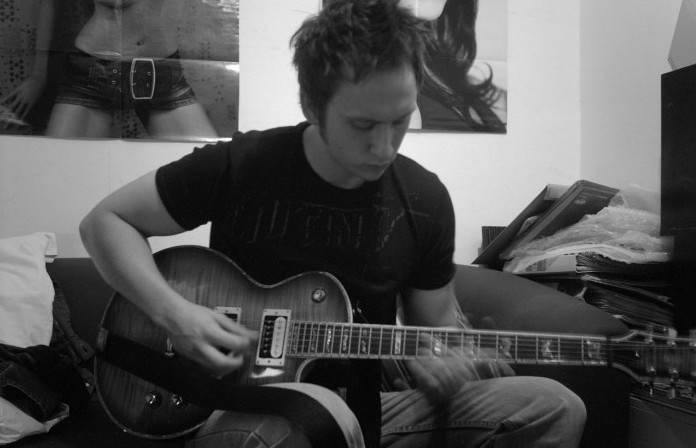
When most of us hear the word practice, we immediately feel a sense of dread. Images of Steve Vai’s infamous 12 hour workout regime spring to mind. The thing is, practicing doesn’t have to be a strict military operation, devoid of all fun and enjoyment. There is no point blindly following lessons from a book or from the internet with the mindset of, “well such and such did this every day and look at him. I have to do the same”.
Guitar playing is all about having fun. That’s it.
You have to enjoy what you are doing beyond anything else. The brain learns in two ways. They are repetition and novelty.
Repetition works by repeating a certain phrase, riff or exercise many times. As long as you are doing it correctly, the brains neural pathways will strengthen and develop. It will become memorised.
Novelty works by forcing the brain to pay attention to new stimuli. This can be learning new songs, listening to new music or playing with different people.
So what is the best way to schedule your practice sessions?
It is almost always best to write out beforehand what you plan to do. Plan out the time of your session and divide it between the various aspects of technique and theory that you want to learn. For example, say you wanted to practice for 2 hours. You may divide it up like this.
15 minutes – warm up
30 minutes – learn some new chords
15 minutes – practice the riff to Sweet Child O’Mine
Have a break
15 minutes – Play through the pentatonic scale
30 minutes – Focusing on strumming, maybe by playing a song
15 minutes – Play along to a song and try to figure out a riff or melody
This is just an example off the top of my head. Now, the important part of any practice schedule is to focus for a short period of time, say 1 hour. Then have a break. I also suggest spending only 15-30 minutes on one area as in my experience the brain starts to get a little bored if you spend too long on something.
If you wanted to spend 30 minutes on a technique, and you find that after 15 minutes your mind is starting to wander and you feel bored and restless. Then stop and do something else, or take a short break. If you aren’t paying attention, your learning ability is going to diminish. Also if your mind starts to wander, it is a good sign you aren’t enjoying it so choose something you know you will find fun.
Remember with practicing. It is always quality over quantity. Whatever you are learning, make sure it is fun and you will progress a lot quicker.